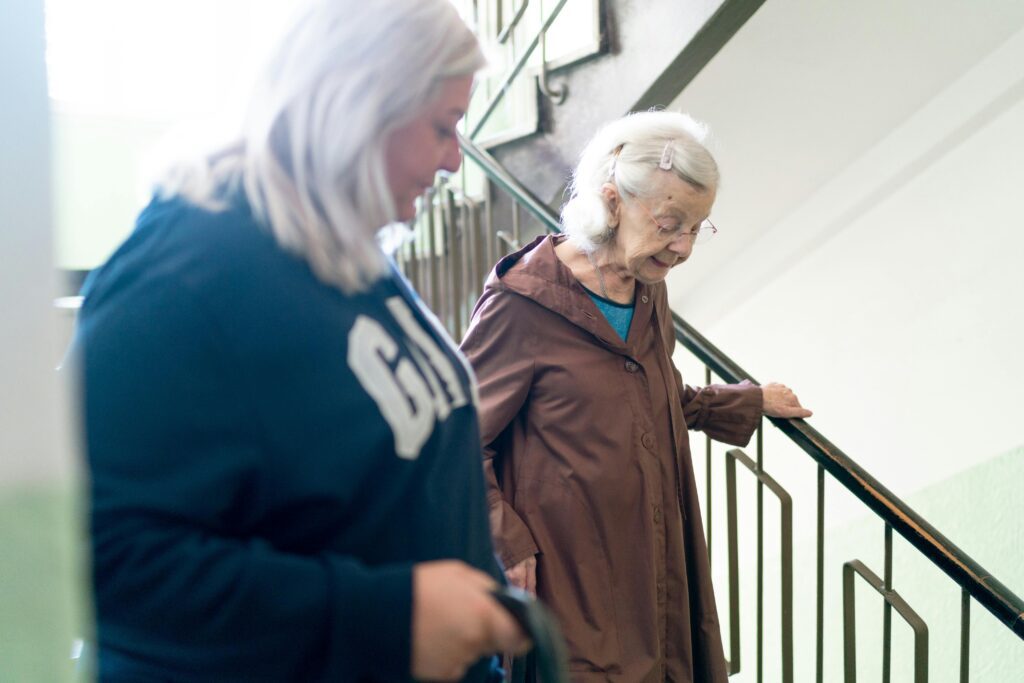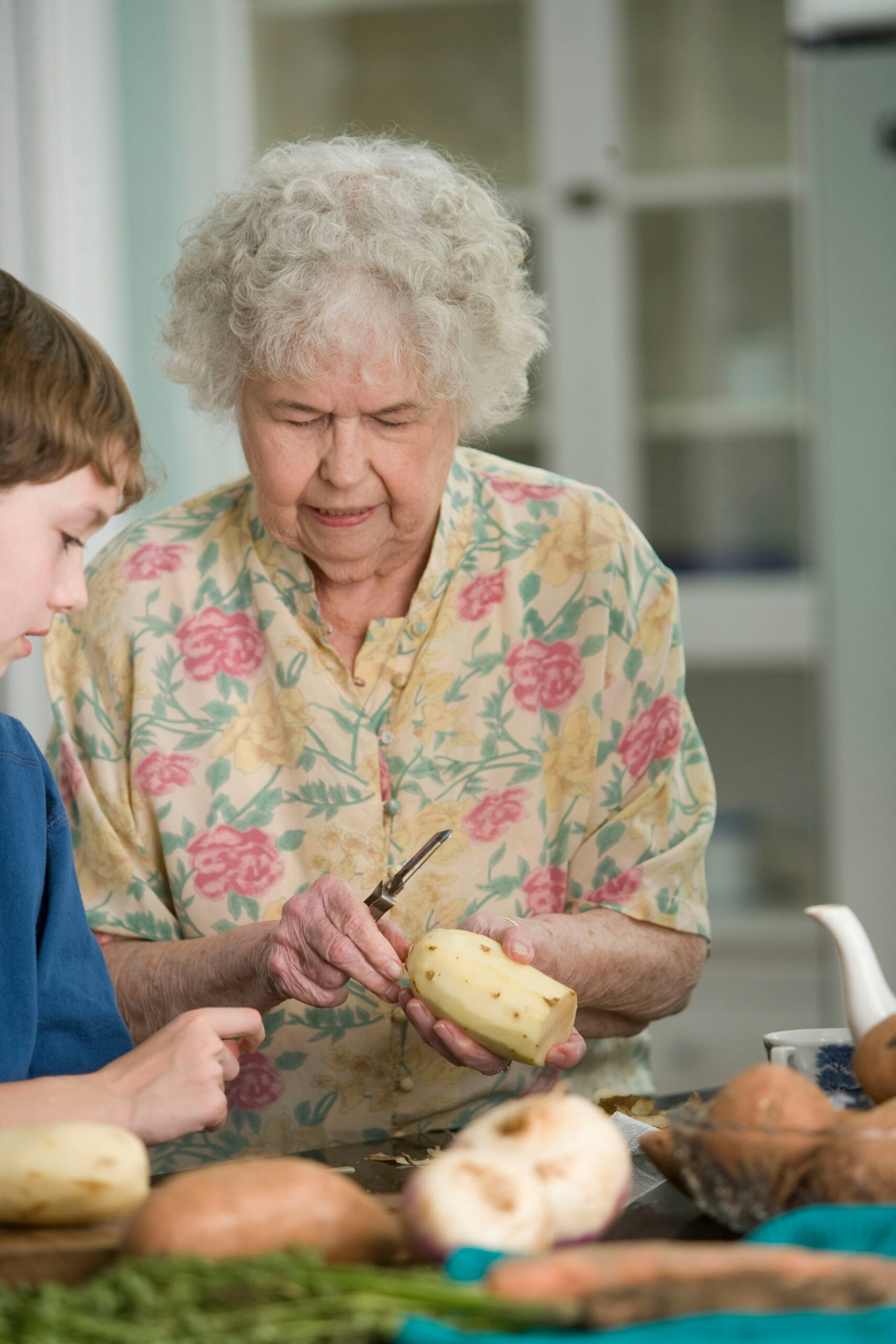
Dementia is a progressive brain disorder that changes the way a person thinks, remembers, communicates, and functions day to day. As time goes on, it becomes harder for them to follow conversations, manage routines, or even recognize familiar faces. You might also see jarring mood swings or changes in their behavior and personality.
It’s heartbreaking to watch someone you love go through this. And, if you’re providing dementia care at home, it’s physically and emotionally draining.
But remember, the person you’re caring for is trying to make sense of a world that doesn’t work the way it used to. It takes patience, energy, and constant emotional adjustment.
Compassion First and Always
 | The first and most important tip for dementia caregiving is to understand what your loved one is experiencing. A lot of us, especially if it’s a friend or family member we knew before their illness, get frustrated when they act differently. You must always keep in mind that what they’re going through is more than just forgetfulness. They’re confused, anxious, and sometimes angry, and what they’re feeling is very real to them. Even though you mean well, saying things like “That’s not right” or “Don’t you remember?” can actually make them more agitated or confused. |
Also, don’t interact with them like you used to before their illness. Instead, try to meet them where they are now. This is one of the most important parts of dementia care at home. The more you step into their shoes, the more connected and supported they’ll feel.
Common Behavior Changes
Another key dementia caregiver tip is this: behavior is often a message. Dementia patients might not have the words or mental space to express what they need, so their actions speak for them. For example, they might pull at their clothes when they want to use the bathroom.
Additionally, something or someone could have triggered a reaction. Pay attention to what happens right before and right after they do certain things, and you’ll notice patterns that help you understand them better.
Common dementia-associated behaviors include:
- Wandering
- Agitation
- Aggression
- Repetition
- Paranoia
- Sleeplessness
- Mood swings
Being an aide may mean becoming a bit of a detective, but noticing the small cues will make dementia care at home a lot easier. However, always inform your nurse or doctor if any of these behaviors become excessive.
Talking to Someone with Dementia
Conversations will often go in circles, or sometimes they won’t go anywhere at all. That’s okay. What matters more is keeping them calm and engaged, which has a lot to do with how you say things.
People with dementia respond best to an even tone and relaxed body language. In fact, they will get more confused or anxious if they sense stress or frustration.
Try to limit background noise like TVs or other conversations, and keep your questions simple and easy to answer. Instead of asking open-ended questions like “What do you want to eat?” try offering a clear choice. “Would you like soup or a sandwich?” for example.
Also, as mentioned in the previous dementia caregiver tip, pay attention to non-verbal cues. A gesture or facial expression will tell you just as much, if not more, than words.
Help with Eating and Drinking
Another important aspect of dementia care at home is getting your loved one to eat well. People with dementia forget that they need to eat and stay hydrated, or sometimes they don’t like the taste or texture of food. This is especially common with people taking medication.
Here, structure goes a long way. Stick to a consistent routine where meals are at the same time each day, and at the same familiar spot.
Smaller portions throughout the day often work better than making them eat three large meals a day. Additionally, a few small, nutritious snacks and juices can keep them nourished and hydrated in between.
Hygiene and Getting Dressed
Personal care becomes more complicated as dementia progresses, and unfortunately, it’s often a big cause of anxiety and agitation.
Routine helps create comfort and stability, which are both essential for good dementia care at home. For example, if your loved one always bathed in the morning or preferred a certain soap, try to keep those things the same.
Use safety tools like grab bars, shower chairs, and non-slip mats to prevent falls. Do your best to protect their sense of independence and privacy, but never leave them unattended in the bath or shower.
When it comes to clothing, simple is best. Look for soft, loose-fitting clothes with zippers, snaps, or elastic waists. Anything that makes getting dressed easier and less frustrating for both of you.
Don’t Go It Alone
Our final dementia caregiver tip is to remember that you don’t have to do it all by yourself. It’s okay to need help. In fact, it’s necessary.
Join support groups and local communities to connect with others who understand the unique challenges of dementia care at home. If you can’t attend regular sessions, online forums like the Alzheimer’s Association’s Alzheimer’s and Dementia community and Mayo Clinic’s Dementia Support Group for Caregivers are a great place to start.
And remember, Hahn Home Health Care is always ready to support you with skilled professionals who offer gentle, professional care that gives you and your family peace of mind. Contact us today to learn more about our Alzheimer’s or dementia caregiving services.